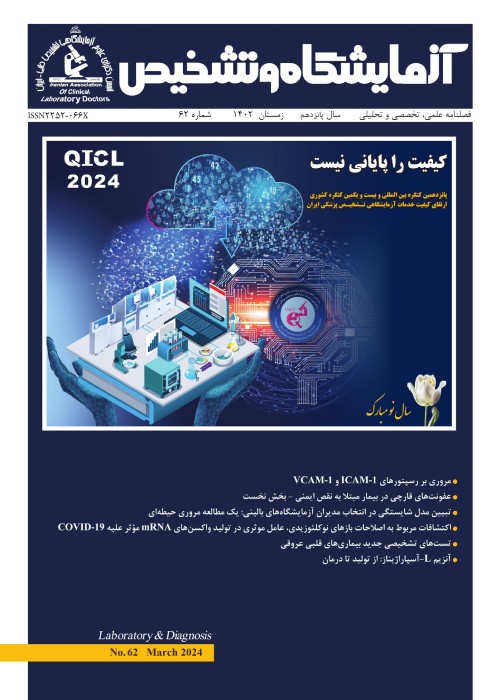Stem cells and Type 1 diabetes
Author(s):
Abstract:
Type 1 diabetes)T1D), is an autoimmune disease that targets insulin-secreting pancreatic beta cells for destruction. A fully mature, functional β cell produces and appropriately secretes the mature form of insulin, in response to glucose to maintain normal glycemic levels in the blood. The current treatment for T1D is long-term insulin replacement therapy. Pancreatic transplantation has been performed for T1D patients with success but the main limitations of this strategy are the low number of suitable donors and the risks of surgery. The replacement of β cells is a promising therapy for diabetic patients, but the process depends on the discovery of sources other than cadaveric pancreas. Stem cells are undifferentiated cells that are capable of self-renewal and differentiation into any cell type. Pancreatic stem cells would be an ideal source for β cell replacement since they are committed to differentiate into pancreatic cells, but their cellular marker phenotype and anatomic location has not yet been identified. Also, as pancreatic stem cells will likely be isolated from healthy patients, the immune system barrier to allogeneic transplants will also need to be addressed. Another alternative to Pancreatic stem cells is the differentiation of IPCs)Insulin producing cells) from ESCs)Embryonic stem cells) or iPSCs)induced pluripotent stem cells). But this first requires the development and acceptance of a standard methodology to generate them. IPCs differentiated by this standard methodology will have to be completely mature and functional. The generation of a well-defined homogenous population of transplantable pancreatic progenitors that can be identified with extracellular markers would be an alternative to IPCs. Finally, independently of the type of cell transplanted)ESC-IPC, iPSC- IPC, or pancreatic progenitors), the immunogenicity of these cells will have to be considered and determined to predict the potential and type of immune response to block before and after transplantation. The data collected from such analyses will aid in the establishment of strategies that can promote immune tolerance of these IPC grafts.
Language:
Persian
Published:
فصلنامه آزمایشگاه و تشخیص, Volume:5 Issue: 20, 2013
Page:
5
magiran.com/p1489977
دانلود و مطالعه متن این مقاله با یکی از روشهای زیر امکان پذیر است:
اشتراک شخصی
با عضویت و پرداخت آنلاین حق اشتراک یکساله به مبلغ 1,390,000ريال میتوانید 70 عنوان مطلب دانلود کنید!
اشتراک سازمانی
به کتابخانه دانشگاه یا محل کار خود پیشنهاد کنید تا اشتراک سازمانی این پایگاه را برای دسترسی نامحدود همه کاربران به متن مطالب تهیه نمایند!
توجه!
- حق عضویت دریافتی صرف حمایت از نشریات عضو و نگهداری، تکمیل و توسعه مگیران میشود.
- پرداخت حق اشتراک و دانلود مقالات اجازه بازنشر آن در سایر رسانههای چاپی و دیجیتال را به کاربر نمیدهد.
In order to view content subscription is required
Personal subscription
Subscribe magiran.com for 70 € euros via PayPal and download 70 articles during a year.
Organization subscription
Please contact us to subscribe your university or library for unlimited access!


